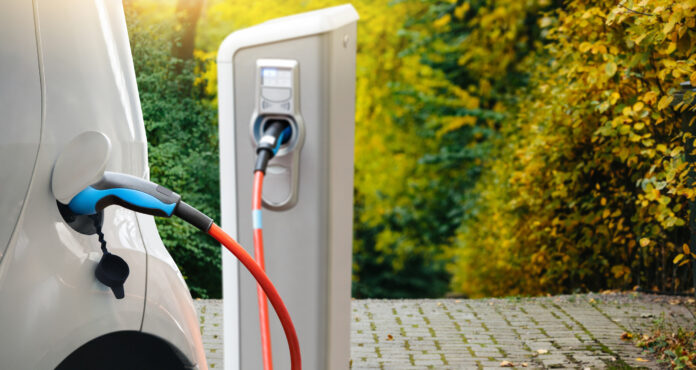More people than ever are making the switch from petrol and diesel cars to lower-emission vehicles like electric vehicles (EVs). While there’s lots of research to support that EVs are better for the planet, how eco-friendly are they? Motoring journalist Nick Harper looks at the environmental impacts of electric cars.
Transport has been a big part of the global focus on reducing our carbon footprint. EVs are seen as a great way to help the environment. In 2020, there were around 205,000 EVs on UK roads. Today, there are more than one million, and the number is expected to keep rising.
The new Zero Emission Vehicle (ZEV) Mandate means that by 2035, all new cars produced by car manufacturers will need to be electric. This does not mean petrol or diesel cars will disappear, but it does mean that we can expect to see fewer models entering the new car market in the next few years. With the reduced supply of petrol or diesel cars, this means prices of the existing models are expected to increase in price.
You might already know that electric cars do not create pollution while driving. That’s because they do not burn fossil fuels, so they cannot send carbon dioxide (CO2) into the atmosphere. This is why EVs are great in big cities with low-emission zones.
But EVs still have environmental impacts during their lifespan. Here’s everything you need to know about the environmental impacts of EVs:
Manufacturers are using sustainable processes
While electric cars are better for the environment over their lifespan, they can create more emissions than other vehicles during manufacturing. This is mainly because their batteries need raw materials such as lithium and cobalt, which take a lot of energy to get hold of.
But with the rise in EVs there is progress being made. Lithium is also needed for other everyday gadgets such as mobile phones and laptops. So that means a lot of research is being done to improve its sustainability. One solution could be using modern extraction methods that use geothermal energy. For cobalt, scientists around the world are already testing ways to create cobalt-free batteries.
One way to create the energy needed to make cars it to use renewable energy sources. Many car manufacturers are using renewable energy sources in their production lines already. For example, Ford and Audi are using solar energy to lower their emissions.
The production process is not perfect. But over time, we can expect to see a growing focus on developing sustainable ways to produce EVs.
EV battery recycling is improving
There’s growing research to improve battery recycling so we can reuse raw materials when making new batteries. Another focus is recycling EV batteries, which is expected to grow a lot in the future. Manufacturers around the world are already starting to work on this as more EVs enter the new car market.
Recycling EV batteries has improved in recent years. More manufacturers are finding ways to recycle materials from old batteries into new ones or into other products. Recycling old batteries could mean the same battery might be used more than once, reducing the impact on the environment.
Researchers in Sweden recently developed a method to recycle almost all the aluminium and lithium in EV batteries. This means that by the time the current generation of EV batteries reaches the end of their lifecycle, the new technology might already be in place to recycle them.
EVs create less CO2 when being driven
Think about a medium-sized family car that runs on petrol or diesel. Over time, it makes about 24 tonnes of CO2. But only 23% of those emissions are created during the production process. So that means about 77% comes from driving the car, which is a huge amount of CO2 pollution. To give you an idea, it takes around 50 trees growing for a whole year to capture just one tonne of CO2.
If the electricity that powers an EV comes from a power plant that burns fossil fuels, this can be harmful to the environment. So electricity that comes from renewable sources, like wind or solar panels, is a better option.
Some energy companies provide 100% renewable electricity. Plus, the government have plans to increase the UK’s offshore wind capacity by 2030. This means that as energy production becomes greener, the environmental impact of driving an EV will be reduced even more.
EVs have a longer lifespan than petrol or diesel cars
EVs have fewer moving parts than a petrol or diesel car. This means that they usually need less maintenance and can have a longer lifespan.
Like a petrol or diesel car relies on the engine, an EV relies on the battery. These batteries usually last around 8 years or around 100,000 miles.
Leasing an electric car on the Motability Scheme
When you lease an electric car through the Motability Scheme, you can get a home chargepoint if it’s your first fully electric car on the Scheme. We’ll arrange and cover the cost of the chargepoint and a standard installation.
If you cannot get a home chargepoint and it’s your first fully electric car on the Scheme, we’ll offer you a subscription to the bp pulse network.
Want to learn more about electric vehicles?
You can see the full range of EVs available on the Motability Scheme, simply tick the ‘Electric’ box under ‘Fuel Type’ in our Find a vehicle tool.
Related articles


